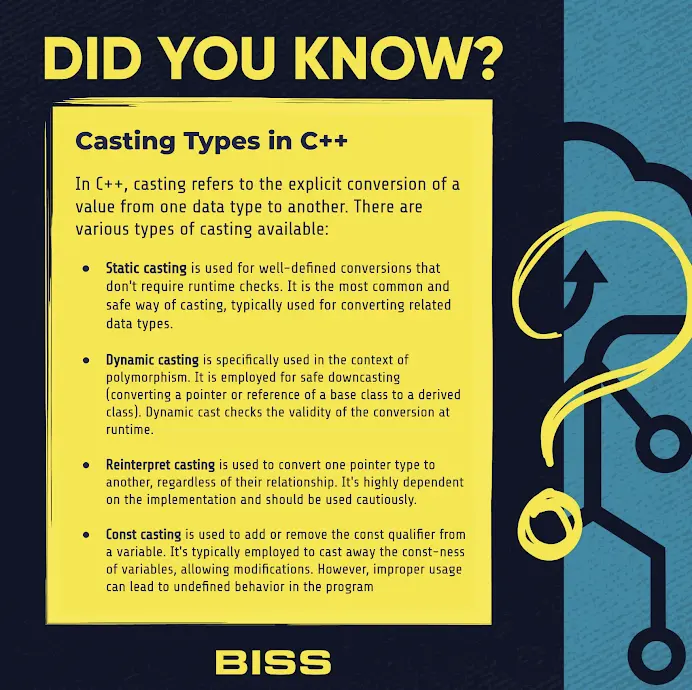In C++, casting refers to the explicit conversion of a value from one data type to another. There are various types of casting available:
- Static casting is used for well-defined conversions that don’t require runtime checks. It is the most common and safe way of casting, typically used for converting related data types.
- Dynamic casting is specifically used in the context of polymorphism. It is employed for safe downcasting (converting a pointer or reference of a base class to a derived class). Dynamic cast checks the validity of the conversion at runtime.
- Reinterpret casting is used to convert one pointer type to another, regardless of their relationship. It’s highly dependent on the implementation and should be used cautiously.
- Const casting is used to add or remove the const qualifier from a variable. It’s typically employed to cast away the const-ness of variables, allowing modifications. However, improper usage can lead to undefined behavior in the program



